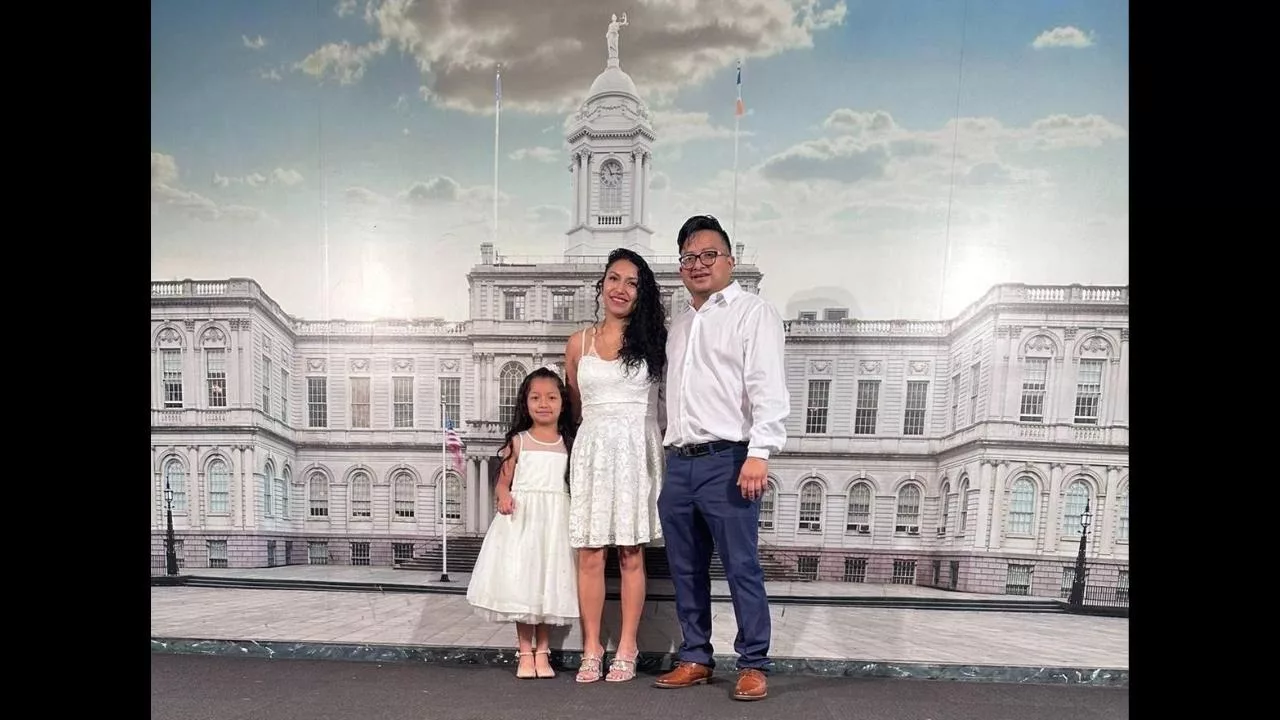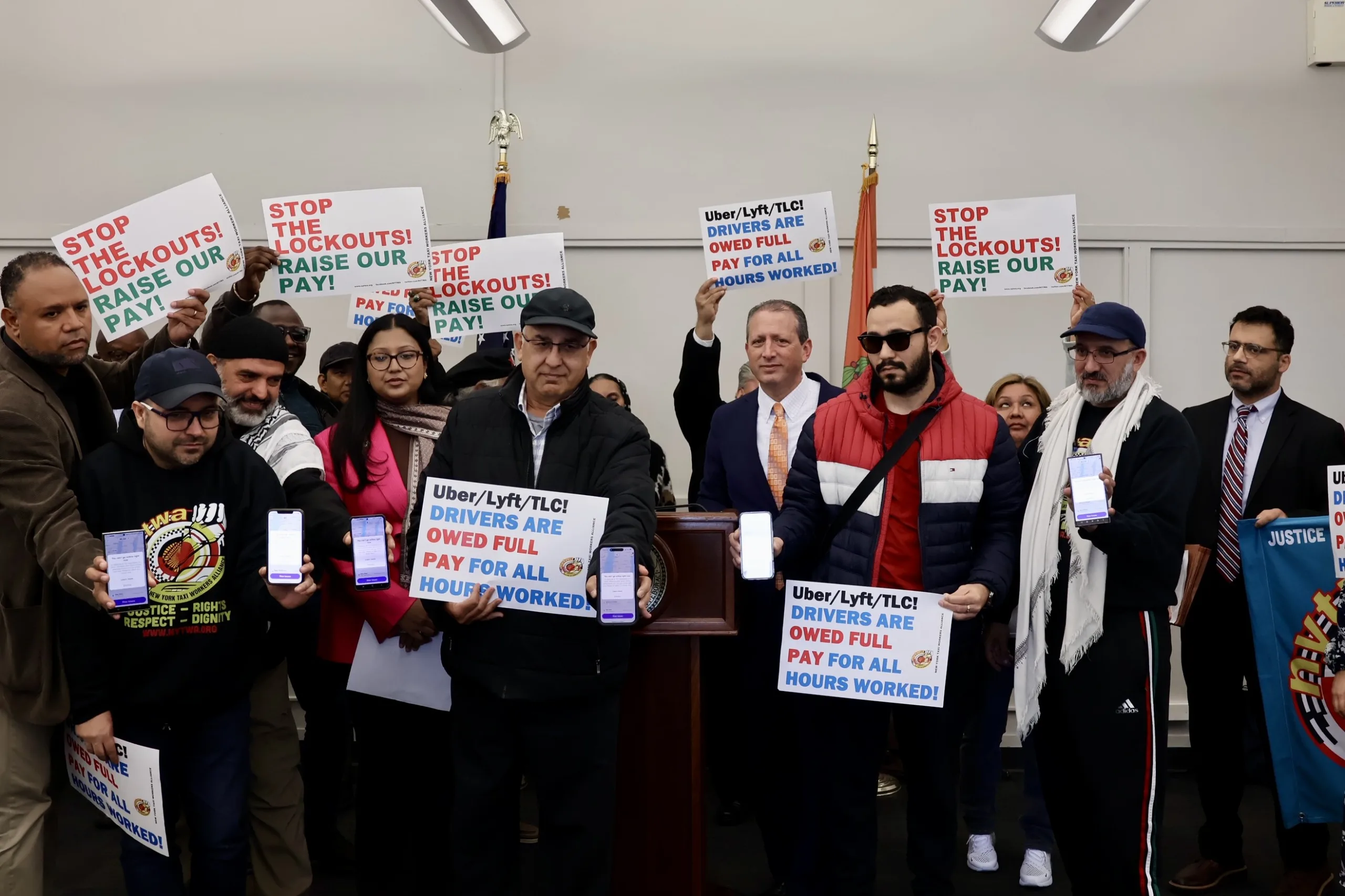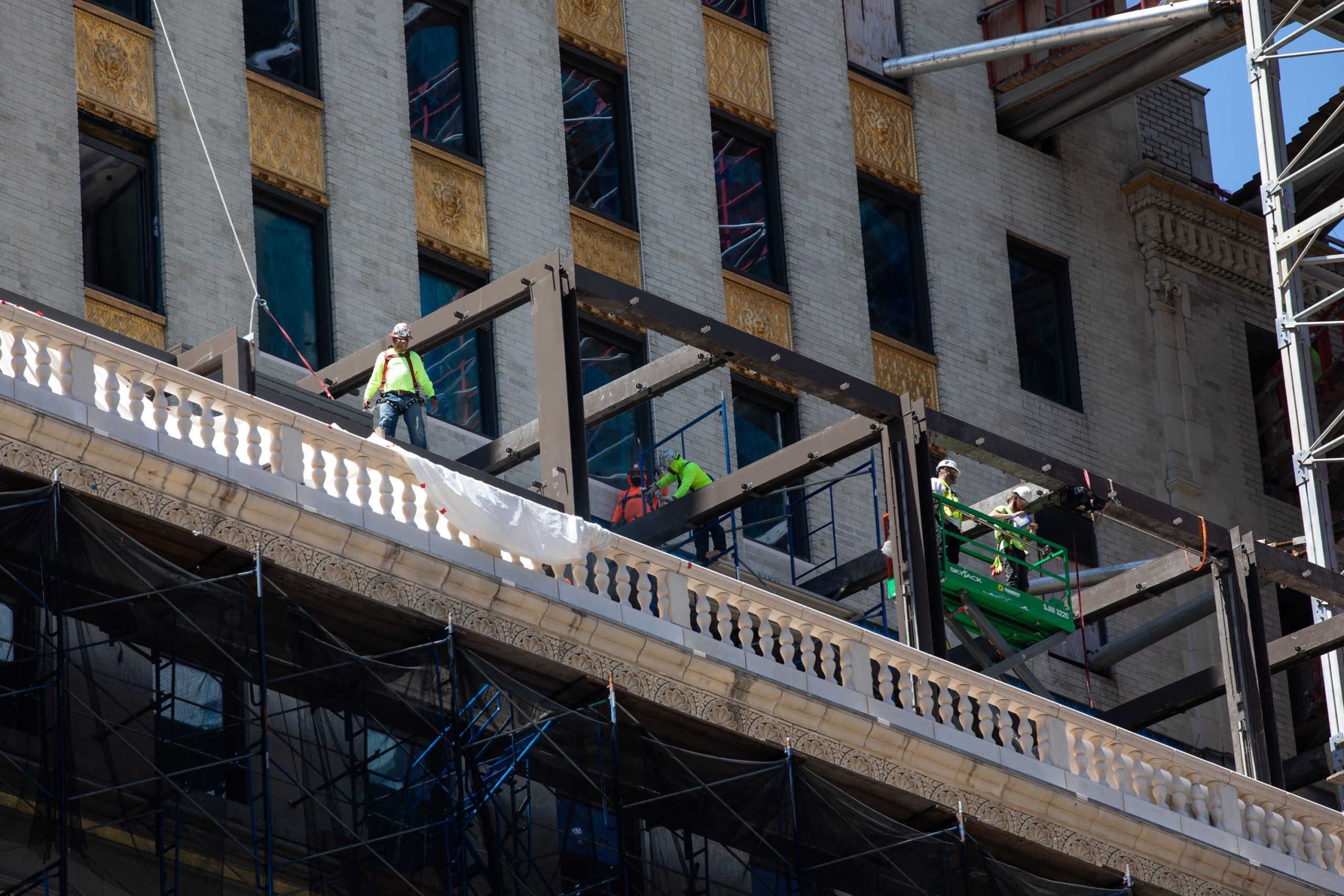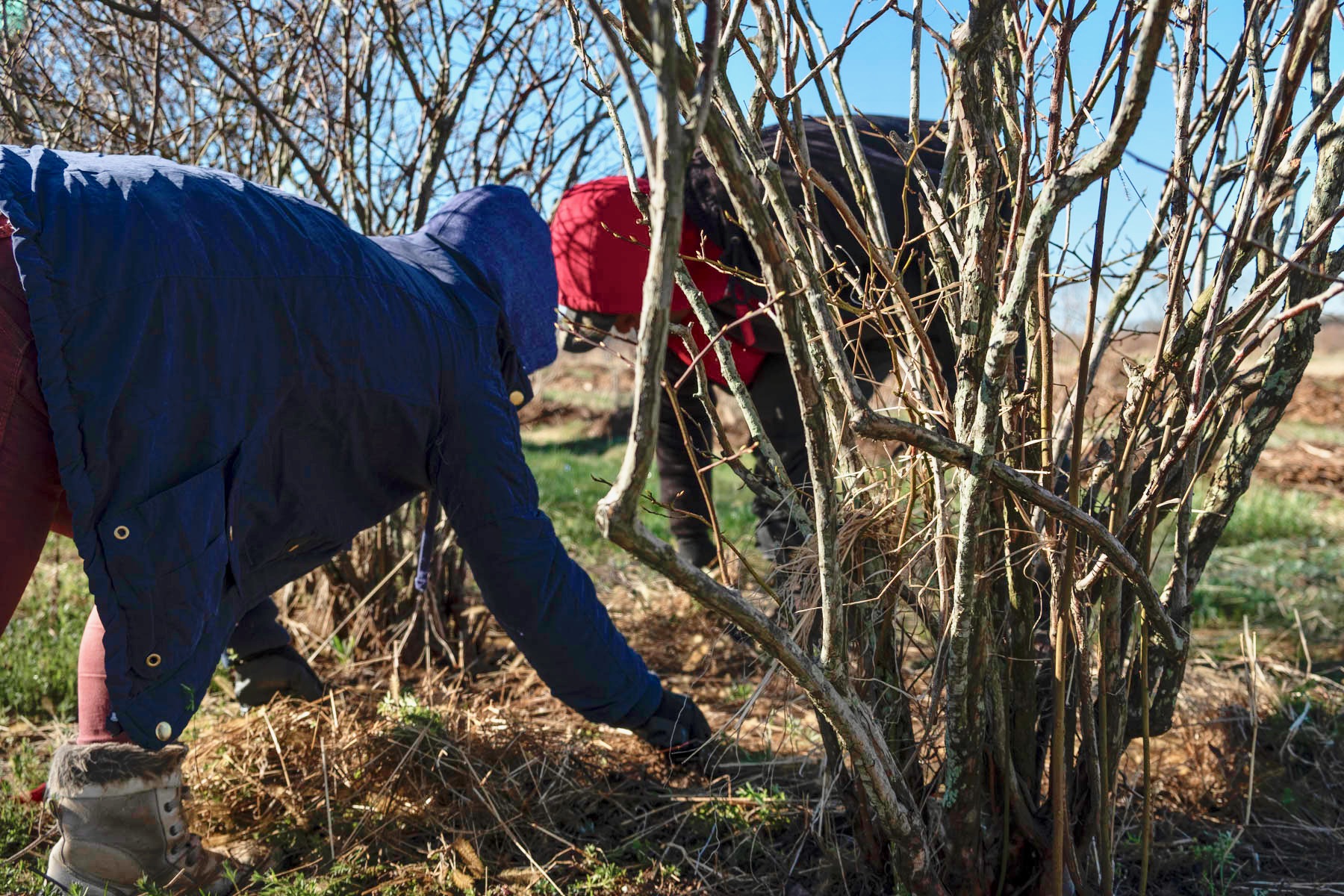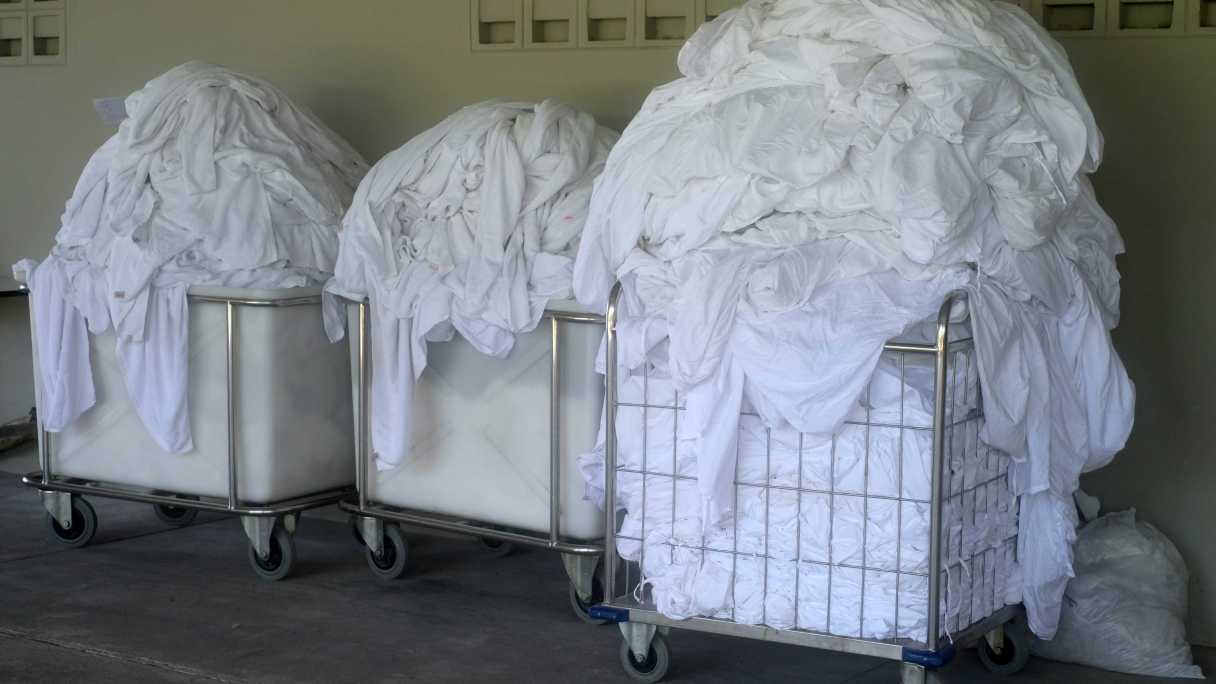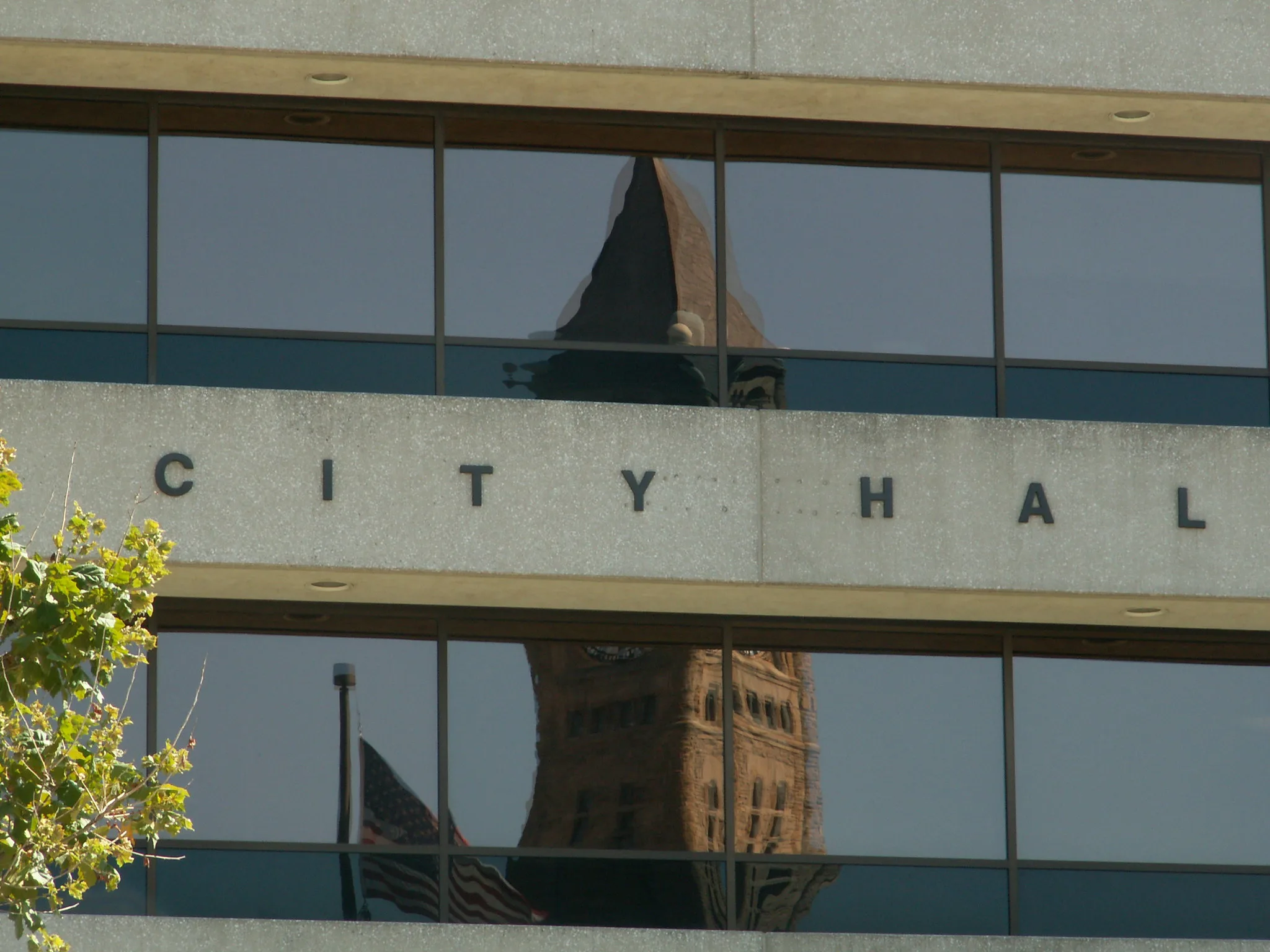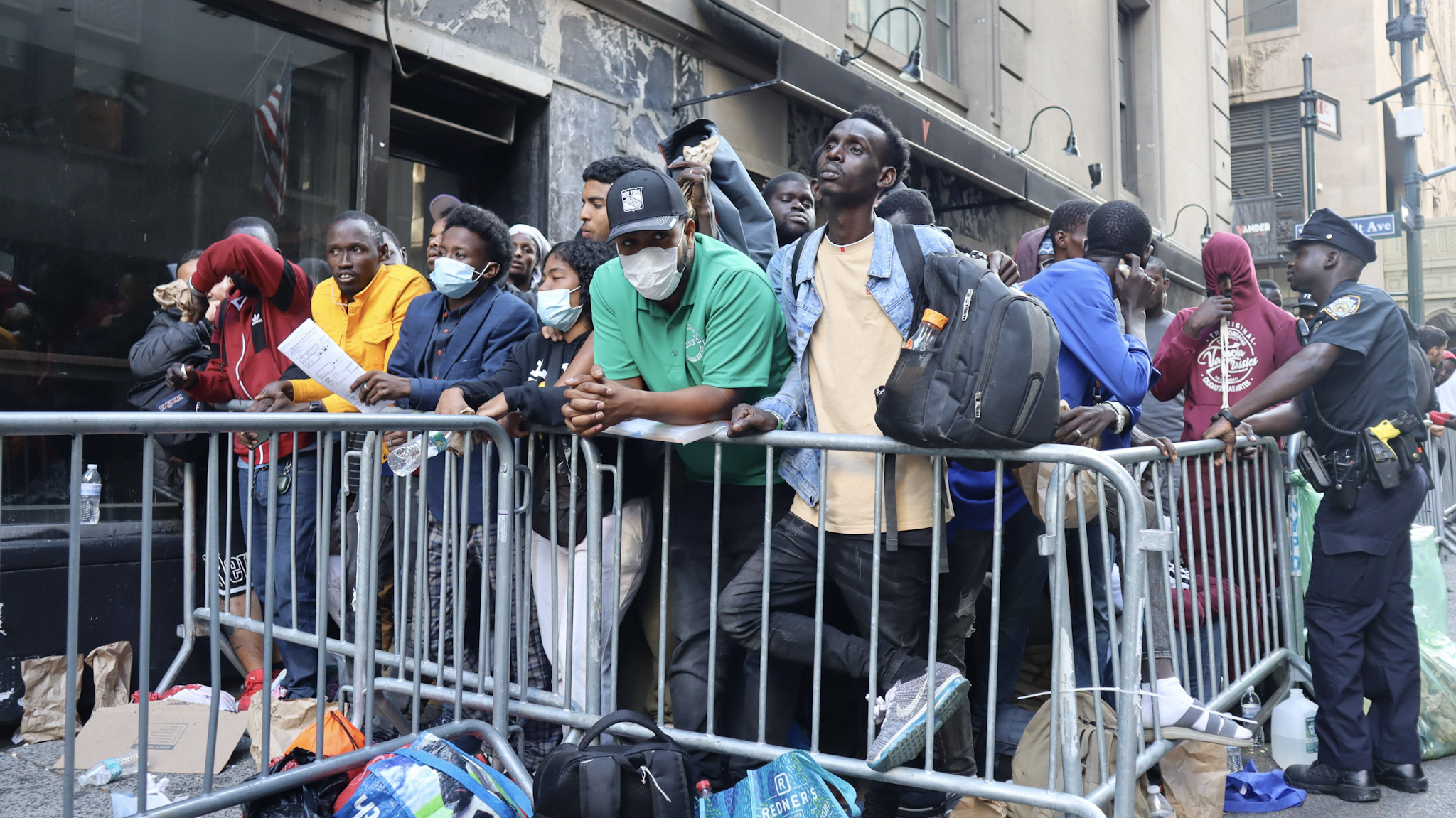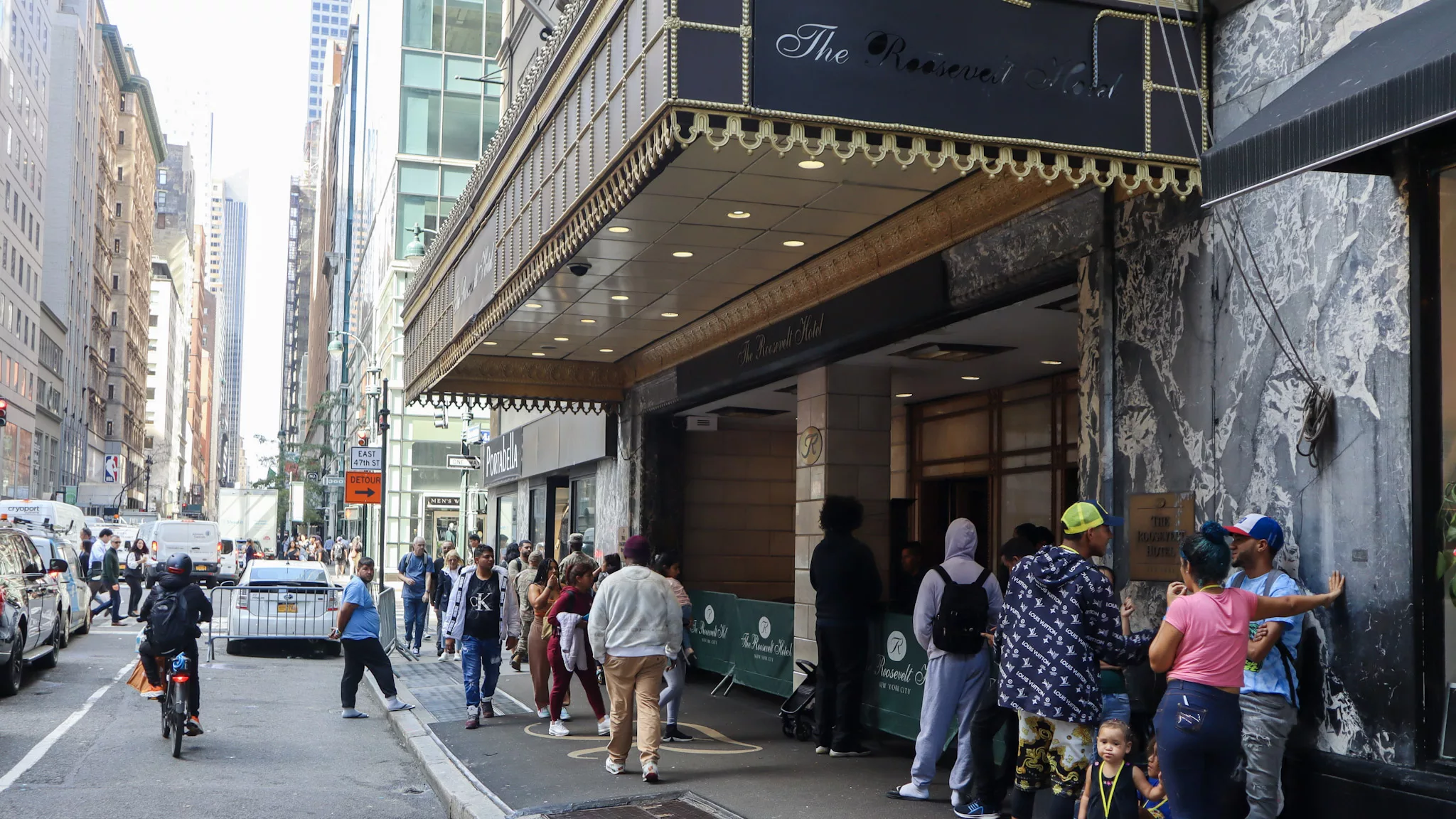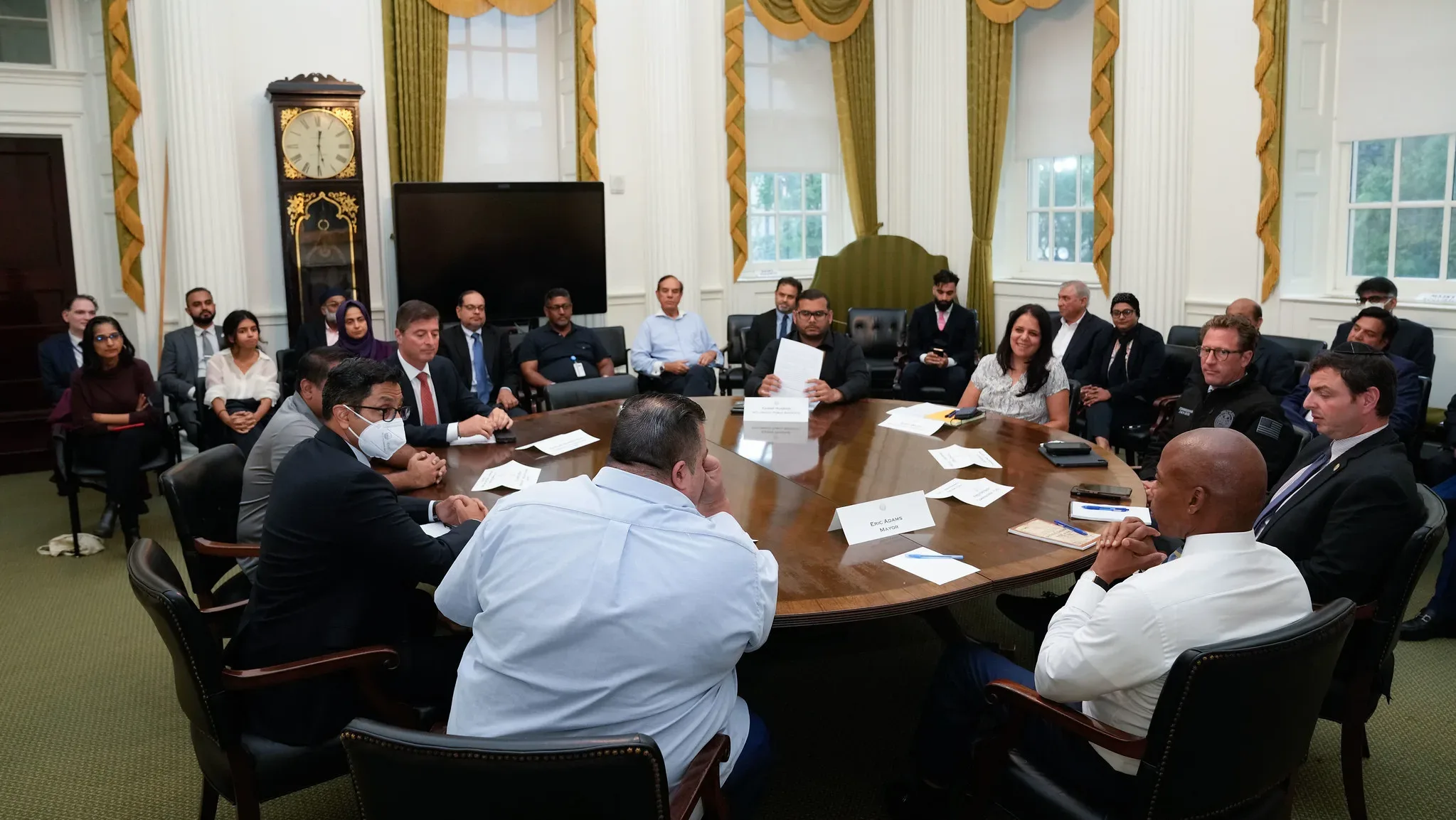It began outside a soccer field in Quito, Ecuador. Stalin Alquinga was looking for women to come join a local soccer team, and heard from an acquaintance that Maria Correa had skills on the pitch. So he asked Correa if she wanted to join the team. Correa was 22 at the time and Alquinga was 25 years old.
“From there, we started getting to know each other, and he would accompany me to play soccer,” Correa said in Spanish. Correa was a forward on the women’s games, and Alquinga played defense on the corresponding men’s games.
Correa, who is now 30 years old, had loved playing soccer since she was a teenager at school and across different neighborhoods. She had endured a difficult childhood, growing up with various different family members who agreed to take her in. Correa’s mother had immigrated to Italy when she was just 6 months old, and her father was mostly out of her life. But when she met Alquinga, who is now 33, she began to finally feel less alone, she said.
“He heard about how my life was as a girl, and he always told me not to worry — that he will be there for me,” Correa said.
Also Read: Immigrant Children In Queens Find Community at 5 Star Soccer Academy
At 23 years old, when she became pregnant with her first child — their now 7-year-old daughter Zhoemi — she soon moved into Alquinga’s mother’s house, and immediately felt embraced as part of the family. After about three years, Alquinga and Correa moved out into their own apartment, each working in the taxi industry and building out their own lives together. Their second child, Anders, is now 3 years old.
But as the situation in Ecuador became more unstable, their own everyday lives began to disintegrate. Alquinga decided he should make the journey north due to threats and violence, Correa said. At first, Correa was scared to join him — she thought the journey would be too dangerous for her and the children. But the day before Alquinga was supposed to leave, Correa decided that the entire family should migrate to the U.S. together.
“We were left without anything,” she said about their lives in Ecuador. “We couldn’t live in peace.”
So they began the odyssey side by side with their children, who were just two and six at the time. They knew the trek would be difficult, having to traverse the Darién Gap by foot and cross through seven countries. “The day we left Quito, I was trembling, I was really scared,” Correa said.
Through crossing jungles, rivers, and struggling to find shelter, the family of four kept going. Alquinga would cut down tree limbs to build makeshift beds. “We felt very protected by him,” Correa said about Alquinga. “He was always watching out for his family. He never left us alone.”
They made their way through Central America and Mexico, across the border into Texas, and arrived in New York about a year ago. The trek north bonded Correa and Alquinga in a new and deeper way, Correa said.
“We realized that we would be there for each other for anything,” she said. “We went through that really difficult experience, but I think it helped us to once again feel that love between the two of us.”
Once in New York, the family sought shelter at the Row Hotel in Midtown. Alquinga searched hard to find employment, working in construction during the week in Long Island, and coming back on the weekend with money for the family. At the beginning of January, as the family approached their shelter stay limit at the Row Hotel, they moved to an apartment in East Orange, New Jersey, where they live today.
But one unique memory stands out to both of them when they think about their time in New York City.
In Ecuador, they had felt pressure from family members to get married. Still, they wanted to wait and make that decision on their own, without outside influence. And that moment came in September of 2023. “We decided to get married here in New York because of everything we have gone through,” Correa said. “Today, we know each other really well — he knows my character, and I know his.”
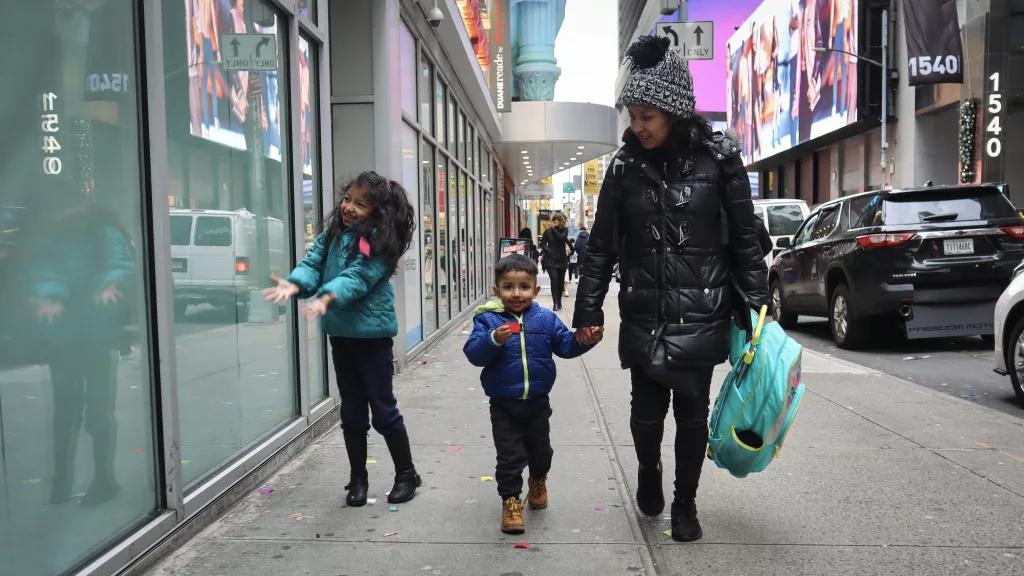
In September of 2023, the family of four made their way to the city clerk’s office in Downtown Manhattan. Correa wore a white lace dress which rested above her knees. Her daughter Zhoemi liked to wear similar outfits as her mother, so Zhoemi also chose a white, flowy dress — and placed a white flower in her hair. Amidst nerves and excitement, the couple, after being together for more than eight years, exchanged vows in their new city alongside their children.
Pictures from the day show the family holding hands walking out of the City Clerk’s office, and Correa clutching a bouquet of white roses. They headed directly to celebrate their marriage at an Ecuadorian restaurant in Queens. “Now we have a beautiful memory for the two of us. Also our children can see the example from their parents, being married, that we’re a family,” Correa said. “It was something very lovely, very special.”
